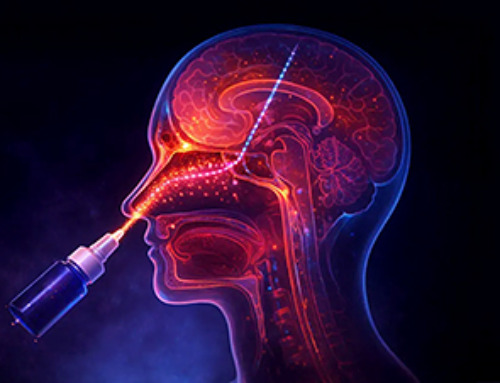Precision medicine is reshaping healthcare by tailoring treatments to individual patients based on their unique genetic, environmental, and lifestyle factors. At the forefront of this revolution, the integration of quantum computing and machine learning (ML) promises to bring faster, more accurate, and highly personalized diagnostics and therapies.
This article goes into some of the advancements in quantum algorithms that are driving this transformation, exploring breakthroughs in diagnostics, treatment optimization, and the development of ML models for individualized care.
Advancing Diagnostics with Quantum Algorithms
Accurate diagnostics form the foundation of effective medical treatment. Though highly developed, current diagnostic methods face limitations in processing the vast amount of patient-specific data generated through genomic sequencing, imaging, and biomarkers. Quantum algorithms like the Harrow-Hassidim-Lloyd (HHL) algorithm and Grover’s algorithm are emerging as game-changers in this domain.1,2
The HHL algorithm provides exponential speedups for solving linear systems, which are common in analyzing complex biological datasets. For example, it can accelerate the identification of disease markers by analyzing large-scale genomic data, enabling the rapid detection of patterns associated with specific conditions. Similarly, Grover’s algorithm can enhance the efficiency of database searches, making it possible to pinpoint rare genetic mutations or analyze medical images with unprecedented precision.1,2
Smarter Treatments with Quantum Optimization
Precision medicine thrives on identifying the most effective treatment for each patient, which requires solving complex optimization problems involving multiple variables, such as drug combinations, dosage levels, and treatment schedules. Quantum computing excels in this area, particularly through the application of quantum annealing and variational quantum algorithms (VQAs).
Quantum annealing facilitates the optimization of treatment pathways by exploring a vast solution space more efficiently than classical algorithms. For instance, in cancer therapy, finding the optimal combination of drugs and radiation doses often involves evaluating millions of potential strategies. Quantum systems can identify the most promising solutions in significantly less time, reducing the trial-and-error approach currently prevalent in treatment planning.
Moreover, variational quantum algorithms further enhance this process by dynamically adjusting parameters based on real-time feedback. These algorithms allow for the simulation of molecular interactions, helping researchers predict how a specific drug will interact with a patient’s unique genetic profile. Such insights accelerate drug discovery while ensuring higher efficacy and fewer side effects..3,4
Personalized Drug Discovery and Development
The journey of drug discovery has often been a long and costly one, typically taking over a decade to bring a new treatment to market. However, quantum algorithms are set to change this landscape dramatically by allowing scientists to simulate molecular interactions with remarkable precision and scale. One such algorithm, known as quantum phase estimation (QPE), is particularly effective at modeling quantum systems. This capability enables researchers to gain insights into complex interactions between drugs and their target proteins, which are crucial for treating specific diseases. By predicting how a drug molecule binds to a protein, QPE helps identify the most promising candidates for further development, significantly reducing the need for extensive physical experiments and thereby saving both time and money.4,5
Beyond improving efficiency in drug discovery, quantum simulations are also opening the way for more personalized medicine. By considering a patient’s unique genetic profile, these advanced simulations can recommend modifications to existing drugs or even inspire the creation of entirely new compounds tailored for maximum effectiveness. This level of personalization marks a significant advancement in pharmacogenomics, ensuring that treatments are better suited to individual patients’ needs.4,5
Quantum-Enhanced Machine Learning in Precision Medicine
QSVMs provide exponential improvements in classifying patient data, such as distinguishing between different subtypes of a disease. For instance, they can analyze subtle variations in gene expression profiles, helping oncologists identify specific cancer subtypes for targeted therapies. On the other hand, QNNs excel at pattern recognition tasks, particularly in predicting how patients will respond to various treatments. By leveraging the principles of quantum entanglement and superposition, QNNs can process multidimensional data more effectively than classical algorithms. This capability is essential for developing predictive models that consider genetics, lifestyle, and environmental factors to recommend highly personalized treatment plans.
Another significant contribution of QML is its ability to accelerate feature selection. In medical datasets, identifying the most relevant features—such as specific genes or biomarkers—can be computationally intensive. Quantum algorithms streamline this process, enabling faster and more accurate model development. This efficiency not only enhances the speed of research but also improves the potential for discovering novel treatment pathways tailored to individual patients’ needs.
As researchers continue to explore the intersection of quantum computing and precision medicine, the potential for QML to transform how we approach drug discovery and treatment personalization becomes increasingly evident. By harnessing the power of quantum technologies, we can unlock new possibilities for understanding complex biological systems and delivering more effective healthcare solutions..2
Precision medicine goes beyond initial diagnostics and treatment planning; it also involves continuous monitoring and adaptation to ensure optimal patient care. Quantum computing can significantly enhance these processes by enabling real-time analysis of patient data streams, such as wearable sensor outputs and electronic health records. This capability allows healthcare providers to respond swiftly to changes in a patient’s condition.
Quantum-inspired algorithms facilitate dynamic treatment adjustments by analyzing incoming data and recalibrating therapies as needed. For instance, patients undergoing chemotherapy often require dosage adjustments based on their body’s response to treatment. Quantum systems can process real-time data to optimize these dosages, helping to minimize side effects while maintaining treatment efficacy.
Moreover, QML models can identify early warning signs of adverse reactions or disease progression, allowing for timely interventions. This capability is particularly valuable in managing chronic conditions like diabetes or cardiovascular diseases, where continuous monitoring is essential for effective care. By leveraging the power of quantum computing, healthcare providers can implement more responsive and personalized treatment strategies that adapt to each patient’s unique needs in real time.1,2
Ethical Considerations and Challenges
While quantum computing offers huge potential, its integration into precision medicine raises significant ethical and technical challenges. Ensuring data privacy is paramount, as quantum algorithms often require access to sensitive patient information. As quantum computing advances, robust encryption protocols must evolve to safeguard patient confidentiality and prevent unauthorized access to personal health data.
Another challenge lies in bridging the gap between theoretical models and practical applications. Quantum hardware is still in its nascent stages, with scalability and error rates presenting significant limitations. Overcoming these hurdles will require collaboration among researchers, clinicians, and quantum computing experts to translate theoretical possibilities into real-world solutions.
Moreover, ethical concerns related to resource allocation and inequality must be addressed. The development of quantum technology often requires substantial resources that may only be accessible to a few nations, potentially exacerbating global socio-economic divides. There is also the risk of misuse of power; powerful quantum computers could break current encryption schemes, leading to breaches of privacy and security.
The complexity of quantum algorithms also raises issues of accountability and transparency. If a quantum algorithm makes a mistake or causes harm, understanding the reasons behind its actions can be challenging. This lack of explainability could hinder trust in quantum systems.
To navigate these challenges, organizations like the World Economic Forum and the National Academies of Sciences are constructing ethical frameworks for quantum computing. These frameworks aim to guide the responsible development and use of this technology, ensuring that it serves the common good while minimizing potential risks.2
Latest Research and Developments
Recent research highlights the expanding role of quantum algorithms in precision medicine, showcasing breakthroughs in drug discovery, genomic analysis, and personalized treatments through enhanced computational capabilities.
A recent study published in Scientific Reports developed a hybrid quantum computing pipeline specifically designed to tackle real-world drug discovery challenges, moving beyond mere proof-of-concept studies. This pipeline focuses on two critical tasks: accurately determining Gibbs free energy profiles for prodrug activation and simulating covalent bond interactions. By benchmarking quantum computing within realistic drug design scenarios, the study demonstrates its potential to address complex chemical interactions, propelling quantum computing toward practical integration into drug development workflows and offering scalable solutions to pharmaceutical challenges.6
Another study published in BMC Bioinformatics introduced a QNN architecture aimed at genetic biomarker discovery, addressing the substantial computational challenges associated with this task. Utilizing Maximum Relevance-Minimum Redundancy criteria, the model successfully identified biomarkers in CTLA4-associated pathways, including genes such as CLIC4, ETS2, and LCN2. The QNN model proved efficient and suitable for constrained hardware, demonstrating its utility across four CTLA4 activation pathways. This work underscores the potential of quantum artificial intelligence (AI) in uncovering critical genetic insights that are essential for advancing precision medicine and genetic research.7
These advancements reflect a growing recognition of how quantum computing can transform various aspects of healthcare by enabling more accurate analyses and fostering innovative approaches to treatment personalization.
Future Prospects and Conclusion
The journey toward quantum-powered precision medicine is inherently multidisciplinary, requiring collaboration across various fields such as bioinformatics, quantum physics, and clinical research. Initiatives like quantum computing hubs and partnerships between technology companies and healthcare organizations are accelerating this progress. As researchers and practitioners work together, they are laying the groundwork for advancements in healthcare that could significantly improve patient outcomes.
Looking ahead, promising areas of research include the integration of quantum computing with AI to create hybrid systems capable of autonomous decision-making in healthcare. This combination could enhance the ability to analyze complex datasets, leading to more accurate diagnostics and personalized treatment plans tailored to individual patients. Additionally, advancements in quantum hardware, particularly the development of error-corrected qubits, will further enhance the feasibility of applying quantum algorithms to precision medicine, making these technologies more accessible and effective.
Quantum algorithms represent a huge force in precision medicine, offering powerful tools to tackle some of the most intricate challenges in diagnostics, treatment optimization, and personalized care. By harnessing the computational power of quantum systems, researchers and clinicians can unlock new levels of efficiency, accuracy, and innovation in patient care. As quantum technologies continue to mature, they promise to redefine the landscape of healthcare, making treatments more personalized and effective for each patient.
References and Further Reading
- Jeyaraman, N. et al. (2024). Revolutionizing Healthcare: The Emerging Role of Quantum Computing in Enhancing Medical Technology and Treatment. Cureus, 16(8), e67486. DOI:10.7759/cureus.67486. https://www.cureus.com/articles/278342-revolutionizing-healthcare-the-emerging-role-of-quantum-computing-in-enhancing-medical-technology-and-treatment#!/
- Ullah, U. et al. (2024). Quantum Machine Learning Revolution in Healthcare: A Systematic Review of Emerging Perspectives and Applications. IEEE Access. DOI:10.1109/access.2024.3353461. https://ieeexplore.ieee.org/abstract/document/10398184
- Doga, H. et al. (2024). How can quantum computing be applied in clinical trial design and optimization? Trends in Pharmacological Sciences. DOI:10.1016/j.tips.2024.08.005. https://www.cell.com/trends/pharmacological-sciences/fulltext/S0165-6147(24)00167-6
- Sharma, M. et al. (2023). Personalized Medicine Through Quantum Computing. In Quantum Innovations at the Nexus of Biomedical Intelligence (pp. 147–166). IGI Global. DOI:10.4018/979-8-3693-1479-1.ch009. https://www.igi-global.com/chapter/personalized-medicine-through-quantum-computing/336150
- Chow, J. C. (2024). Quantum Computing in Medicine. Medical Sciences, 12(4), 67. DOI:10.3390/medsci12040067. https://www.mdpi.com/2076-3271/12/4/67
- Li, W. et al. (2024). A hybrid quantum computing pipeline for real world drug discovery. Scientific Reports, 14(1), 1-15. DOI:10.1038/s41598-024-67897-8. https://www.nature.com/articles/s41598-024-67897-8
- Nguyen, PN. (2024). Biomarker discovery with quantum neural networks: a case-study in CTLA4-activation pathways. BMC Bioinformatics 25, 149. DOI:10.1186/s12859-024-05755-0. https://link.springer.com/article/10.1186/s12859-024-05755-0
News
Oceans Are Struggling To Absorb Carbon As Microplastics Flood Their Waters
New research points to an unexpected way plastic pollution may be influencing Earth’s climate system. A recent study suggests that microscopic plastic pollution is reducing the ocean’s capacity to take in carbon dioxide, a [...]
Molecular Manufacturing: The Future of Nanomedicine – New book from Frank Boehm
This book explores the revolutionary potential of atomically precise manufacturing technologies to transform global healthcare, as well as practically every other sector across society. This forward-thinking volume examines how envisaged Factory@Home systems might enable the cost-effective [...]
New Book! NanoMedical Brain/Cloud Interface – Explorations and Implications
New book from Frank Boehm, NanoappsMedical Inc Founder: This book explores the future hypothetical possibility that the cerebral cortex of the human brain might be seamlessly, safely, and securely connected with the Cloud via [...]
Global Health Care Equivalency in the Age of Nanotechnology, Nanomedicine and Artificial Intelligence
A new book by Frank Boehm, NanoappsMedical Inc. Founder. This groundbreaking volume explores the vision of a Global Health Care Equivalency (GHCE) system powered by artificial intelligence and quantum computing technologies, operating on secure [...]
Miller School Researchers Pioneer Nanovanilloid-Based Brain Cooling for Traumatic Injury
A multidisciplinary team at the University of Miami Miller School of Medicine has developed a breakthrough nanodrug platform that may prove beneficial for rapid, targeted therapeutic hypothermia after traumatic brain injury (TBI). Their work, published in ACS [...]
COVID-19 still claims more than 100,000 US lives each year
Centers for Disease Control and Prevention researchers report national estimates of 43.6 million COVID-19-associated illnesses and 101,300 deaths in the US during October 2022 to September 2023, plus 33.0 million illnesses and 100,800 deaths [...]
Nanomedicine in 2026: Experts Predict the Year Ahead
Progress in nanomedicine is almost as fast as the science is small. Over the last year, we've seen an abundance of headlines covering medical R&D at the nanoscale: polymer-coated nanoparticles targeting ovarian cancer, Albumin recruiting nanoparticles for [...]
Lipid nanoparticles could unlock access for millions of autoimmune patients
Capstan Therapeutics scientists demonstrate that lipid nanoparticles can engineer CAR T cells within the body without laboratory cell manufacturing and ex vivo expansion. The method using targeted lipid nanoparticles (tLNPs) is designed to deliver [...]
The Brain’s Strange Way of Computing Could Explain Consciousness
Consciousness may emerge not from code, but from the way living brains physically compute. Discussions about consciousness often stall between two deeply rooted viewpoints. One is computational functionalism, which holds that cognition can be [...]
First breathing ‘lung-on-chip’ developed using genetically identical cells
Researchers at the Francis Crick Institute and AlveoliX have developed the first human lung-on-chip model using stem cells taken from only one person. These chips simulate breathing motions and lung disease in an individual, [...]
Cell Membranes May Act Like Tiny Power Generators
Living cells may generate electricity through the natural motion of their membranes. These fast electrical signals could play a role in how cells communicate and sense their surroundings. Scientists have proposed a new theoretical [...]
This Viral RNA Structure Could Lead to a Universal Antiviral Drug
Researchers identify a shared RNA-protein interaction that could lead to broad-spectrum antiviral treatments for enteroviruses. A new study from the University of Maryland, Baltimore County (UMBC), published in Nature Communications, explains how enteroviruses begin reproducing [...]
New study suggests a way to rejuvenate the immune system
Stimulating the liver to produce some of the signals of the thymus can reverse age-related declines in T-cell populations and enhance response to vaccination. As people age, their immune system function declines. T cell [...]
Nerve Damage Can Disrupt Immunity Across the Entire Body
A single nerve injury can quietly reshape the immune system across the entire body. Preclinical research from McGill University suggests that nerve injuries may lead to long-lasting changes in the immune system, and these [...]
Fake Science Is Growing Faster Than Legitimate Research, New Study Warns
New research reveals organized networks linking paper mills, intermediaries, and compromised academic journals Organized scientific fraud is becoming increasingly common, ranging from fabricated research to the buying and selling of authorship and citations, according [...]
Scientists Unlock a New Way to Hear the Brain’s Hidden Language
Scientists can finally hear the brain’s quietest messages—unlocking the hidden code behind how neurons think, decide, and remember. Scientists have created a new protein that can capture the incoming chemical signals received by brain [...]





















